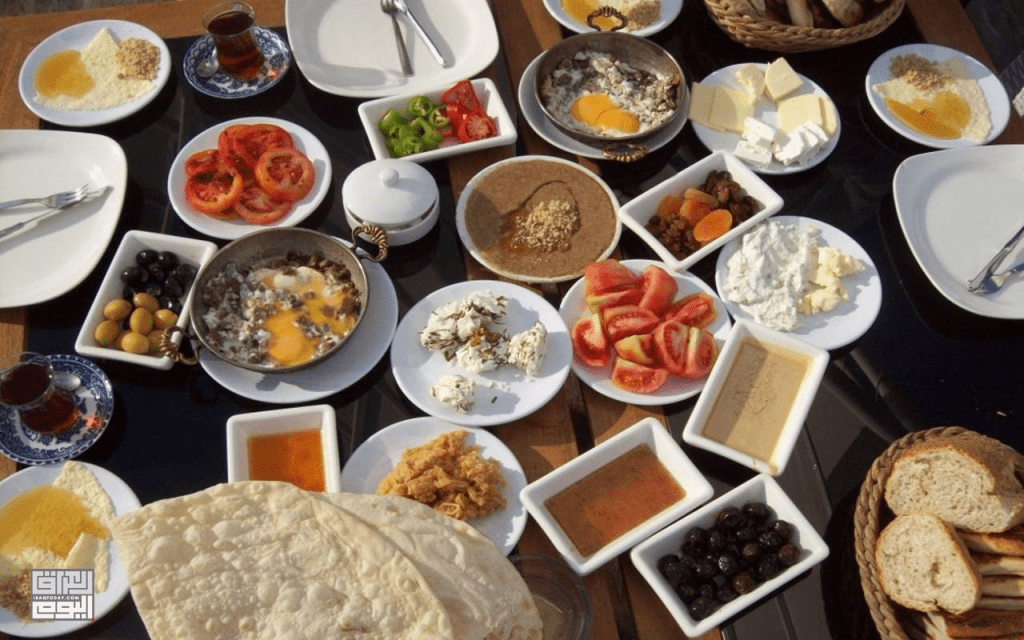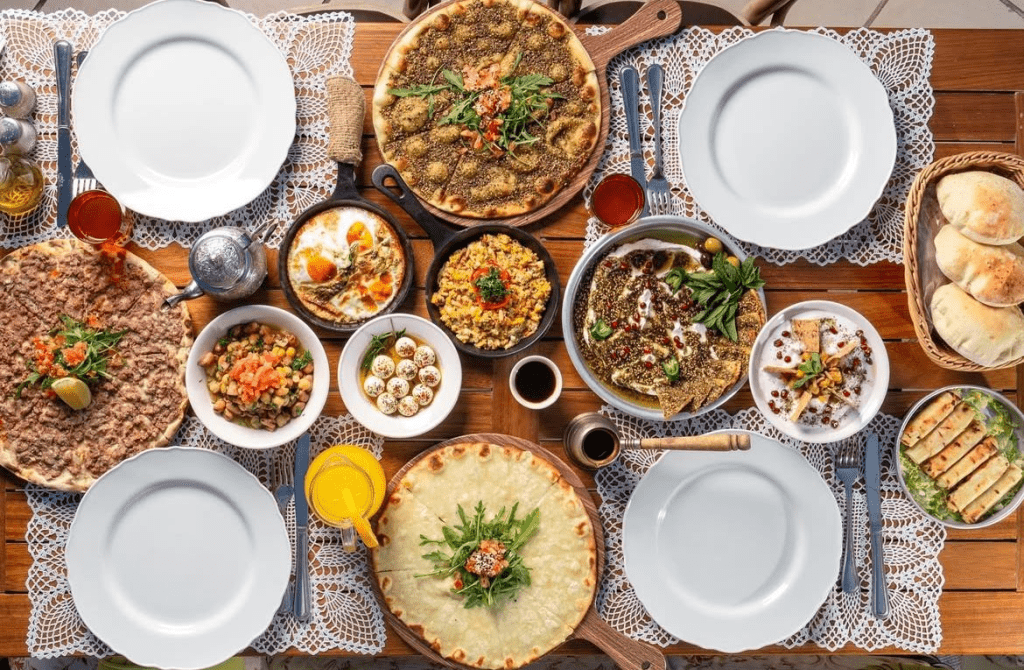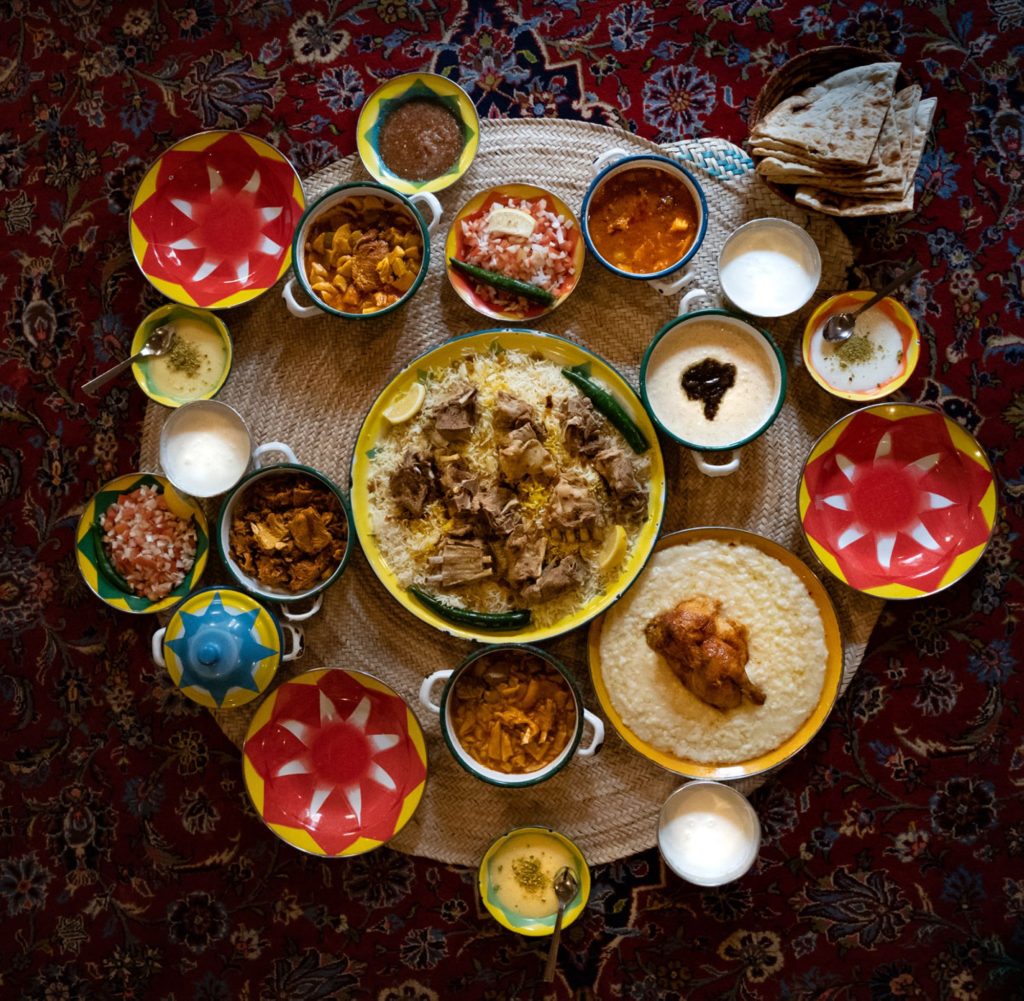As Ramadan rolls in, the Middle East comes alive with time-honored traditions, each culture adding its own flair to the sacred pre-dawn meal, Suhoor. While some keep it simple with dates and milk, others turn it into a grand communal event.
From the mesaharaty roaming the streets to family feasts that could rival iftar, here’s a peek into how different countries prepare for a day of fasting.
1. Egypt: The Mesaharaty’s Call and Watermelon-Cheese Mystery
In Egypt, suhoor is never a solo affair—especially if the Mesaharaty has anything to say about it. This centuries-old tradition involves a man walking through neighborhoods, rhythmically beating a drum, and calling out people’s names to wake them up for suhoor.
Families gather for foul medames (stewed fava beans), taameya (Egyptian falafel), and warm bread. But suhoor is never complete without the legendary duo: watermelon and white cheese—a combo that shouldn’t work but somehow does.
People often finish up with a sweet spoonful of yogurt and honey for a boost of energy.


2. Iraq: A Night of Games, Strategy, and a Hearty Suhoor
After a long night of Al-Muhaibis, a high-stakes game of deception between rival districts, only a hearty suhoor will do. The game begins when one team buys a ring and hides it in a player’s hand.
The opposing team’s leader must then eliminate suspects one by one, hoping to uncover the ring. Guess right, and they win the ring and the chance to hide it next.
The game goes on until one team reaches an agreed-upon score, with the losers footing the bill for trays of baklava.
Just before dawn, the traditional songs that served as the soundtrack for the game fade. Players are then more than ready to refuel with eggs, cheese, dates, and samoon traditional bread with creamy qaymar (thickened cream) drizzled with honey—because only a feast can follow a night of strategy, suspense, and sweet victory.


3. Lebanon: A Sweet and Savory Suhoor With Nargila
Lebanon’s suhoor is all about balance—savory manakish (za’atar or cheese flatbread) sits side by side with a bowl of kishk (fermented yogurt and cracked wheat).
But the real star? Kellaj, a cream-filled pastry, and Atayef, Middle Eastern pancakes, are usually reserved for dessert but sometimes sneak their way onto suhoor tables for a sweet start to fasting.
What makes Lebanese suhoor unique is the lively atmosphere. Across cities, Ramadan tents offer full suhoor spreads, live music, and—of course—nargila, because no Lebanese gathering feels right without it.


4. Morocco: The Nafar’s Flute and a Suhoor of Harira and Mint Tea
While many break their fast with harira (a tomato and lentil soup), some Moroccans enjoy it for suhoor too. The hearty soup is paired with msemen (traditional bread) and mint tea, which somehow manages to energize without disrupting sleep.
But what truly sets Morocco apart is its own version of the Mesaharaty—the Nafar. Dressed in a traditional djellaba and a head turban, the Nafar roams the streets playing a large flute instead of beating a drum, waking up households for suhoor in a distinctly Moroccan way.


5. Saudi Arabia: Kabsa and Camel Milk
In Saudi Arabia, suhoor can be as simple as dates and laban (fermented yogurt) or a full meal of kabsa and meat, but one of the more unique traditions is drinking camel milk for stamina.
Some even add honey for extra nourishment. For many, suhoor is a social gathering, with extended families sitting together long past the meal, engaged in deep conversations and prayer.


Suhoor: More Than Just a Meal
Suhoor is more than just food. It’s a moment of connection, a bridge between night and the long fasting hours ahead. Whether it’s a quiet meal with close family, a large gathering with friends, or a street-wide wake-up call, each culture brings its own unique flavor to this pre-dawn tradition.
And while our ancestors perfected the art of suhoor, one modern tradition remains undefeated: that desperate, last-minute chug of water before Fajr—because deep down, we all believe in our inner camel-like abilities to store water.
WE SAID THIS: Don’t Miss…Uncover Exceptional Suhoor Spots for an Epic Farewell to Ramadan



